
Los Pirineos LP0230, El Salvador, Honey
- Regular price
- $20.00
- Sale price
- $20.00
- Regular price
-
- Unit price
- per
Herbal, baked stone fruit and orange
COFFEE PROFILE
This Honey processed Pacamara lot is sweet and has a range of fruit qualities. On each sip, look for citrus notes like orange, qualities of baked stone fruits, and a slight herbal note in the aroma and finish.
| TASTES LIKE | Herbal, baked stone fruit and orange |
| ROAST | Filter |
Story
El Salvador Los Pirineos Pacamara Honey (Lot LP0230, 2025) is a testament to the expertise of Diego Baraona at Finca Los Pirineos, located in Berlín, Usulután. Perched on the Tecapa–Chinameca volcanic range, this historic estate has been nurturing coffee for over 130 years under the stewardship of the Baraona family. Now led by Diego, the farm is celebrated for its cultivation of Pacamara, El Salvador’s signature variety. Grown under native shade and nurtured in rich volcanic soils at 1,400–1,550 m.a.s.l., the coffee benefits from a unique drying process in a natural wind-tunnel between two peaks, which facilitates exceptionally clean honey processing.
The honey method for this lot involves selectively picking ripe cherries, floating them to remove defects, pulping them with mucilage left intact, and drying them on raised beds. This process is meticulously controlled to ensure even moisture loss, resulting in a concentrated sweetness and a polished expression of Pacamara. Los Pirineos is renowned for its innovation and quality, featuring one of the country’s best Pacamara programs and an extensive variety garden and nursery. The estate has consistently earned acclaim from specialty buyers and competition placements. The resulting cup offers layered fruit, floral notes, and a refined structure that beautifully encapsulates both the unique terroir of the region and the processing mastery of the Baraona family.
| PRODUCER | Diego Baraona |
| REGION | Berlín, Usulután |
| VARIETAL | Pacamara |
| PROCESS | Honey |
| ALTITUDE | 1400-1550 masl |

Origin
Berlin, Usulután, El Salvador
The Apaneca–Ilamatepec region, nestled in western El Salvador across the departments of Ahuachapán and Sonsonate, boasts a rich coffee cultivation history dating back to the mid-19th century. Blessed with volcanic soils from the Ilamatepec (Santa Ana) volcano, altitudes ranging from 1,200 to over 1,800 metres, and a stable climate, the region is ideal for high-quality Arabica production. By the late 1800s, coffee had overtaken indigo as El Salvador’s primary export, with estates in Apaneca and its surrounding mountains thriving to supply European markets.
Despite challenges during the civil war in the 1980s, which saw many farms face abandonment and reduced investment, Apaneca–Ilamatepec remained crucial due to its ideal terroir. The 1990s and early 2000s marked a shift towards specialty coffee markets, with producers focusing on microlots, varietal separation, and enhanced post-harvest methods. The introduction of the Cup of Excellence competition in 2003 further highlighted the region's potential.
Today, Apaneca–Ilamatepec is a protected Denomination of Origin (DO), celebrated for its unique terroir and contribution to El Salvador’s identity. Renowned for producing Bourbon, Pacamara, and increasingly exotic varieties like SL28 and Gesha, the region showcases its versatility through washed, honey, and natural processes. Its history of resilience and innovation positions it at the heart of El Salvador’s specialty coffee reputation, home to some of the nation’s most award-winning farms.
BREW GUIDE
How to get the best tasting cup
NOTE THESE ARE A STARTING POINT AND INDICATE A RANGE TO WORK WITHIN
| Age Best Used | 7-20 days after roast |
| Brew Parameters | Dose 20g in a V60 and add 300g of water in 5 pours of 60g at 88 degrees C. Start with a 60g bloom for 35 seconds then allow water to drain through each subsequent time before adding more water, aim to finish at 3:00 |
| Best Freeze Date | 7-12 days after roast |





